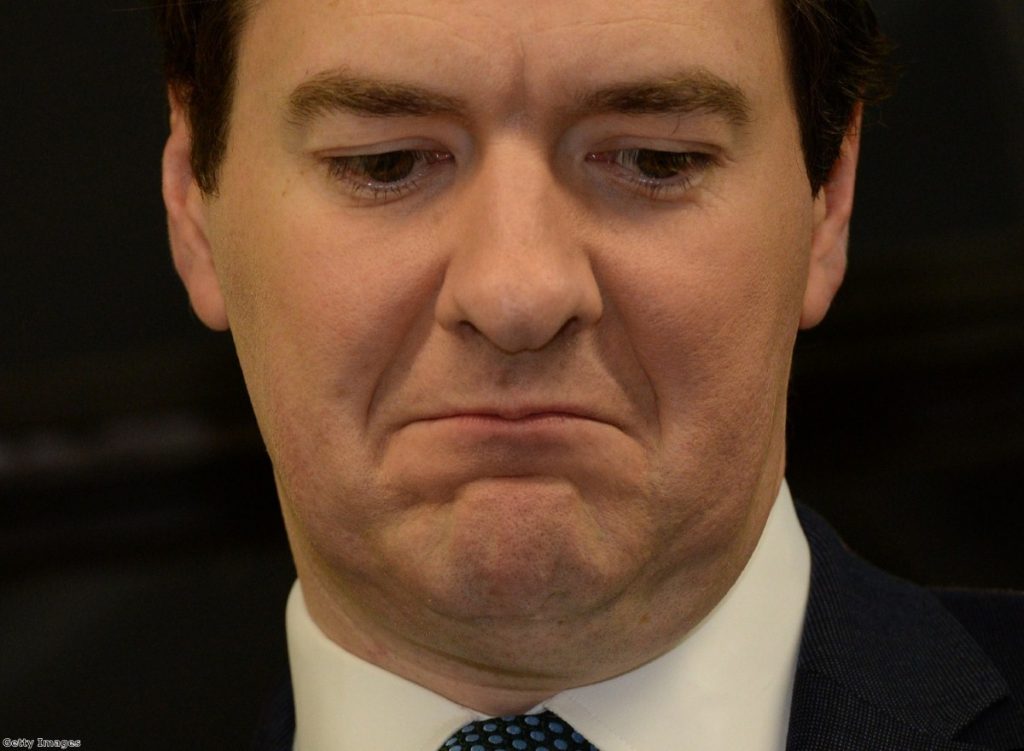St George’s Day? Osborne claims vindication amid booming economy
George Osborne claimed to be vindicated in his pursuit of austerity today, in a confident autumn statement which revealed that growth was being revised upwards by the biggest margin since the millennium.
Economic growth this year is now set to reach 1.4%, up significantly from the 0.6% predicted in March. Next year, growth is revised up from 1.8% to 2.4%.
"Over the last three years we have stuck to our guns, worked through the plan," he said.
"We have done so in the face of a sovereign debt crisis abroad.


"We have held our nerve while those – who predicted there would be no growth until we turned the spending taps back on – have been proved comprehensively wrong."
Tories were jubilant as they realised the UK was experiencing the most substantial economic growth in the developed world but there was a concerted effort from Downing Street to keep celebrations subdued.
Osborne and David Cameron stressed the need for a "responsible" boom aimed at the long-term stability of the British economy.
In a sobering announcement, the chancellor revealed that the state pension age would increase to 70 by the 2060s and unveiled a further £1 billion in additional spending cuts.
Privately, Tory strategists are wary of the chancellor celebrating the economy too much.
There are concerns that voters would be prepared to go back to Labour if they think the UK's economic problems have been solved.
Historically, Labour has never been voted into No 10 when economic growth has been below two per cent and some believe swing voters instinctively switch to Labour when they think the economy is performing well.
Conservatives are also wary of Labour's cost-of-living agenda and privately admit that soaring economic results are having little impact on people's wages, which are still rising slower than inflation.
That fact is particularly concerning given the recovery is primarily being driven by household spending, which is itself still heavily reliant on borrowing.
Many economists warn that the boom is fundamentally precarious, because it is based on the exact same trends which failed so spectacularly during the recession.
There may be little improvement to Britain's underlying structural deficit as well, with figures at the Office for Budget Responsibility (OBR) warning that the current upturn is caused mostly by cyclical factors.
The chancellor announced action on business rates in a direct counter to Labour's focus on helping small-to-medium-sized businesses.
He also finally confirmed the introduction of the married couples' tax allowance – a move vociferously opposed by the Liberal Democrats and moderate conservatives but loved by Tory backbenchers.
The chancellor and the prime minister are themselves divided on it, with Cameron pushing for its implementation over Osborne's protests.
It was a small dark cloud on a very successful day for Osborne, who suffered perilously low levels of confidence during last year's 'omnishambles' Budget.
From 11% in 2010, the underlying deficit is now set to fall to 6.8% this year and be wiped out altogether by 2018/19.
That timetable gives the Tories a useful selling point when they go into the general election campaign, although it is still several years after the 2015 deadline they promised when they entered government.

